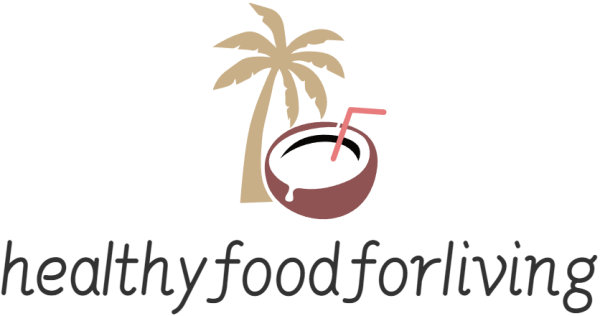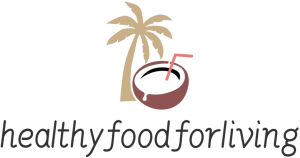In recent years, the rise of plant-based diets has captured the attention of athletes and fitness enthusiasts alike. Many people once thought that building strength and muscle mass could only be achieved through animal-based protein sources, but this misconception has been steadily debunked. Vegan fitness foods, rich in plant-based proteins, complex carbohydrates, and healthy fats, can provide the essential nutrients needed to fuel workouts, support muscle recovery, and enhance overall performance. With proper planning and a balanced diet, athletes can thrive on a plant-based lifestyle and even excel in their fitness goals.
In this article, we will explore the key principles of vegan fitness nutrition, the benefits of a plant-based diet for strength-building, and provide practical tips and recipes to help you harness the power of plants to fuel your fitness journey.
The Benefits of a Vegan Diet for Fitness Enthusiasts
A vegan diet, which excludes all animal products, can offer numerous benefits for athletes and fitness enthusiasts, including enhanced recovery, reduced inflammation, and improved overall health. Here are some of the key advantages of a plant-based diet for those focused on fitness:
- Rich in Nutrient-Dense Foods: A well-planned vegan diet is abundant in fruits, vegetables, whole grains, nuts, seeds, and legumes, which are all packed with vitamins, minerals, antioxidants, and fiber. These nutrients support overall health, enhance immune function, and aid in faster recovery from intense workouts.
- Anti-Inflammatory Properties: Many plant-based foods are naturally anti-inflammatory, which can help reduce muscle soreness and improve recovery times. Foods like leafy greens, berries, and nuts are rich in antioxidants and phytochemicals that help combat oxidative stress caused by exercise.
- Improved Digestion and Gut Health: The high fiber content in plant-based foods promotes healthy digestion and supports a balanced gut microbiome. A healthy gut can improve nutrient absorption and overall energy levels, both of which are crucial for athletes.
- Sustainable Energy: Complex carbohydrates from whole grains, legumes, and starchy vegetables provide sustained energy for workouts. These foods are broken down slowly by the body, preventing energy crashes and maintaining stamina during exercise.
- Lower Cholesterol and Heart Health: Vegan diets are typically lower in saturated fats and cholesterol, promoting heart health. Since cardiovascular fitness is essential for many athletes, maintaining a strong, healthy heart can enhance endurance and overall performance.
Essential Nutrients for Vegan Athletes
While a vegan diet offers many benefits, it’s important to pay attention to certain nutrients that can be more challenging to obtain solely from plant-based sources. Here are the key nutrients vegan athletes should prioritize:
- Protein: Plant-based proteins are essential for muscle repair and growth. Foods like lentils, chickpeas, quinoa, tofu, tempeh, edamame, and seitan are excellent sources of protein. Aim to include a variety of these foods in your meals to ensure you’re getting all the essential amino acids your body needs.
- Iron: Iron supports oxygen transport in the blood, which is critical for athletic performance. Plant-based sources of iron include spinach, lentils, chickpeas, quinoa, and fortified cereals. Since iron from plants (non-heme iron) is less easily absorbed by the body, pairing it with vitamin C-rich foods like bell peppers or oranges can improve absorption.
- Calcium: Calcium is essential for strong bones and muscle function. Vegan sources of calcium include fortified plant milks, tofu, leafy greens (like kale and bok choy), almonds, and tahini.
- Vitamin B12: Since vitamin B12 is primarily found in animal products, vegans need to supplement or consume fortified foods like plant milks, nutritional yeast, and fortified cereals to meet their needs.
- Omega-3 Fatty Acids: Omega-3s are essential for reducing inflammation and supporting heart health. Vegan sources of omega-3s include flaxseeds, chia seeds, hemp seeds, and walnuts.
Best Vegan Fitness Foods for Building Strength
Building strength on a vegan diet is not only possible, but it can also be highly effective when you focus on incorporating nutrient-dense, protein-rich foods into your daily meals. Here are some of the best plant-based foods for athletes looking to build muscle and enhance performance:
- Lentils: Lentils are an excellent source of both protein and fiber, making them a staple for vegan athletes. One cup of cooked lentils provides about 18 grams of protein, along with complex carbohydrates that provide long-lasting energy.
- Quinoa: Quinoa is a complete protein, meaning it contains all nine essential amino acids. It’s also rich in fiber, iron, and magnesium, making it a versatile and nutrient-dense addition to any meal. Use quinoa as a base for salads, bowls, or as a side dish.
- Tofu and Tempeh: Both tofu and tempeh are made from soybeans and are great sources of protein, calcium, and iron. Tofu is versatile and can be used in a variety of dishes, from stir-fries to smoothies, while tempeh has a firmer texture and is great for grilling or sautéing.
- Chickpeas: Chickpeas (also known as garbanzo beans) are another protein-packed legume that can be used in a variety of dishes. Roast them for a crunchy snack, add them to salads, or use them as the base for homemade hummus. One cup of cooked chickpeas contains about 15 grams of protein.
- Seitan: Made from wheat gluten, seitan is one of the highest plant-based protein sources, with around 25 grams of protein per 3.5 ounces. It has a meaty texture and is perfect for stir-fries, sandwiches, or as a plant-based meat substitute.
- Edamame: Edamame, or young soybeans, are a great snack or addition to salads and bowls. They are high in protein (17 grams per cup), fiber, and several key vitamins and minerals, including iron and calcium.
- Hemp Seeds: Hemp seeds are rich in omega-3 fatty acids and provide about 10 grams of protein per 3 tablespoons. Sprinkle them on smoothies, salads, or oatmeal for an added protein boost.
- Nut Butters and Nuts: Almond butter, peanut butter, and other nut butters are convenient, calorie-dense sources of protein and healthy fats. Almonds, in particular, are also rich in vitamin E, an antioxidant that helps reduce muscle damage after exercise.
- Chia Seeds: Chia seeds are a nutritional powerhouse, packed with omega-3s, fiber, and protein. When mixed with liquid, they form a gel-like consistency, making them perfect for chia pudding, smoothies, or as an egg substitute in baking.
- Nutritional Yeast: Nutritional yeast is a vegan’s secret weapon for adding a cheesy flavor to dishes while also providing a good source of protein and B vitamins, including B12 when fortified. It can be sprinkled on popcorn, pasta, or used in sauces.
Vegan Meal Ideas for Athletes
Incorporating these foods into your daily meals is simple and delicious. Here are a few meal ideas to help you build strength and fuel your workouts on a plant-based diet:
- Breakfast: Start your day with a high-protein smoothie made from plant-based protein powder, almond milk, chia seeds, hemp seeds, spinach, and a banana.
- Lunch: A quinoa and chickpea salad with roasted vegetables, avocado, and a tahini dressing provides a balance of protein, complex carbs, and healthy fats.
- Snack: A slice of whole-grain toast with almond butter and sliced bananas or a handful of mixed nuts and seeds is perfect for a quick, energy-boosting snack.
- Dinner: Stir-fry tofu or tempeh with a mix of colorful vegetables, served over brown rice or quinoa for a satisfying, protein-packed meal.
- Post-Workout: After a workout, a smoothie made with frozen berries, a scoop of pea or soy protein powder, almond milk, and a tablespoon of flaxseeds will help replenish glycogen stores and support muscle recovery.










































